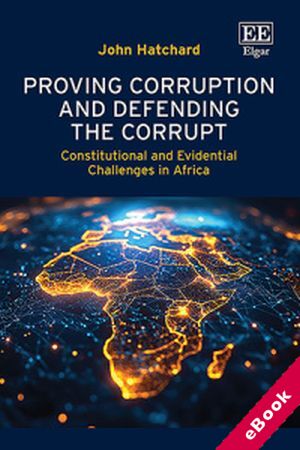
The device(s) you use to access the eBook content must be authorized with an Adobe ID before you download the product otherwise it will fail to register correctly.
For further information see https://www.wildy.com/ebook-formats
Once the order is confirmed an automated e-mail will be sent to you to allow you to download the eBook.
All eBooks are supplied firm sale and cannot be returned. If you believe there is a fault with your eBook then contact us on ebooks@wildy.com and we will help in resolving the issue. This does not affect your statutory rights.
This insightful book explores the question of why there are so few successful corruption-related prosecutions in Anglophone African countries and considers how this situation can be addressed. John Hatchard analyses the unique challenges faced by anti-corruption investigators and prosecutors in effectively implementing the requirements of the criminalisation pillar contained in the United Nations Convention Against Corruption.
Hatchard discusses the tension between proving corruption – that is, providing for effective investigations and evidence gathering, and utilising this to facilitate prosecutions – versus defending the corrupt – protecting the constitutional rights of those facing prosecution and challenging the admissibility of key prosecution evidence. He advocates for the adoption of the ‘Golden Triangle’ and a fairness approach. This requires balancing a triangulation of interests: protecting the constitutional rights of the accused, considering the interests of victims of corruption and maintaining the public interest in combating corruption effectively. Through analysis of anti-corruption legislation and judicial pronouncements, Hatchard demonstrates how to make the fairness approach effective with a view to strengthening the criminalisation pillar.
This unique and influential book is of worldwide interest for students and academics studying law, politics and business. Its practical insights will also greatly benefit anti-corruption agencies, legal practitioners, policymakers, law reformers, civil society organisations and the corporate sector.